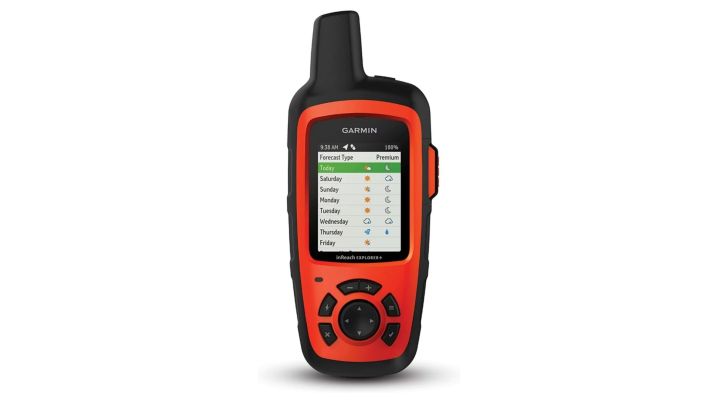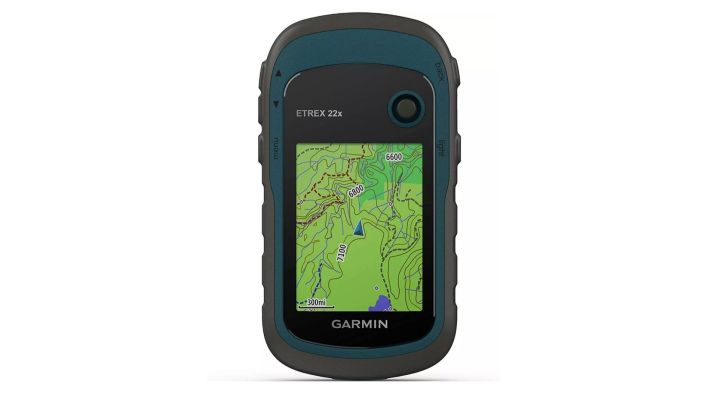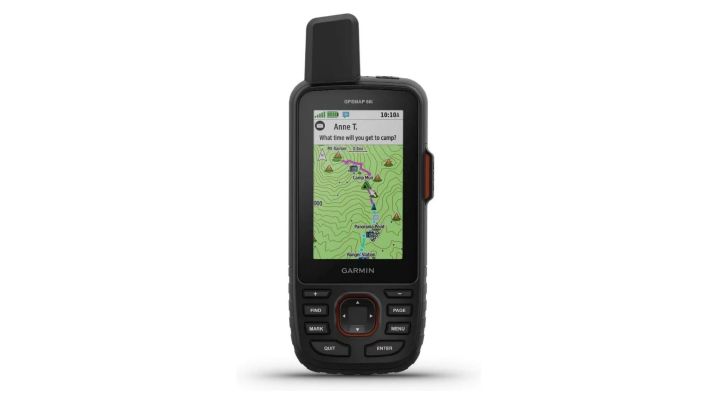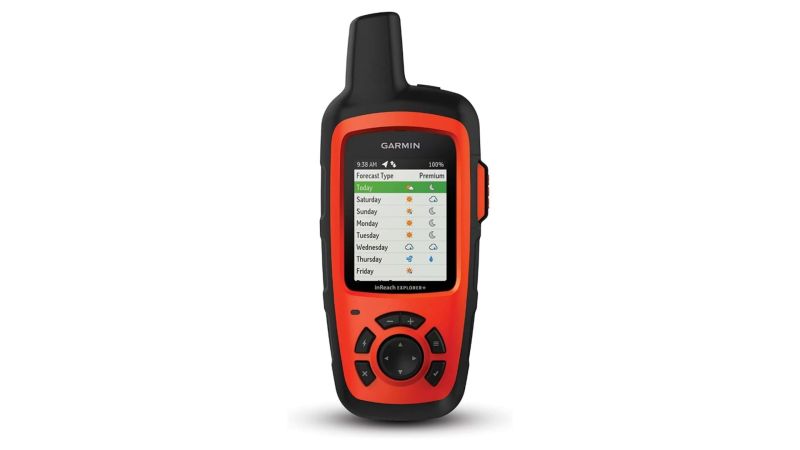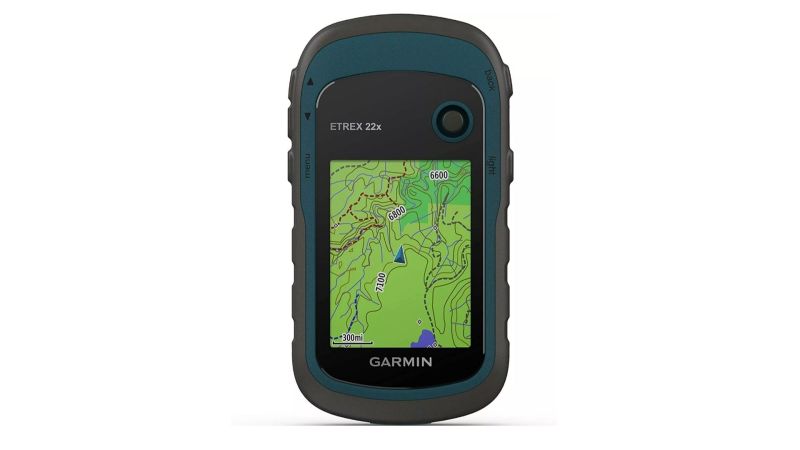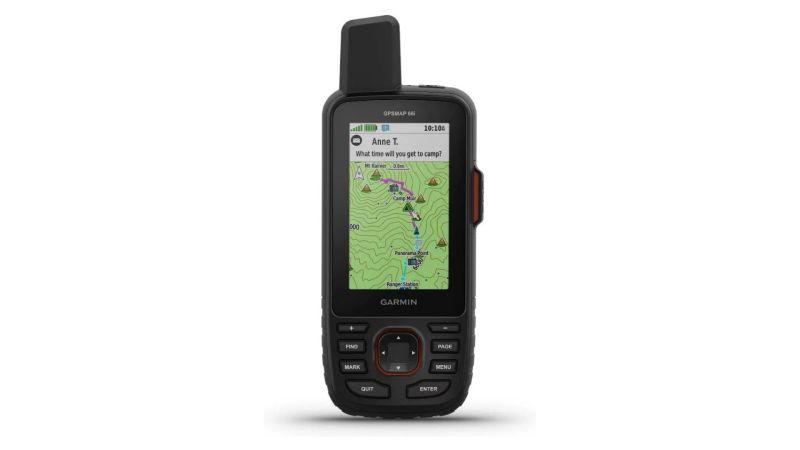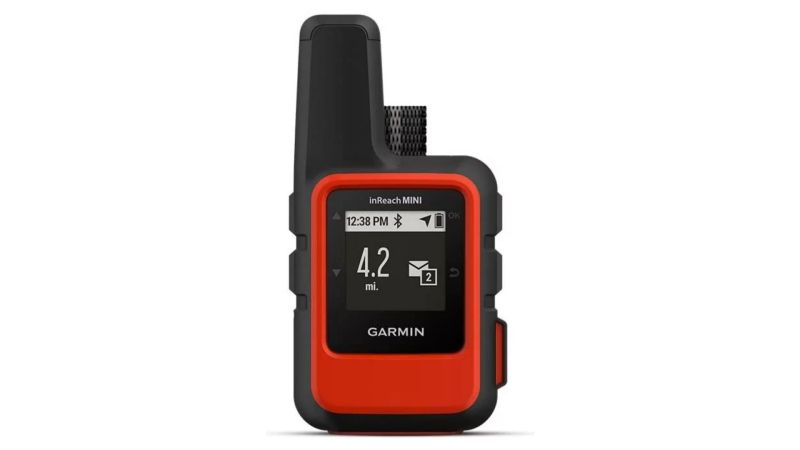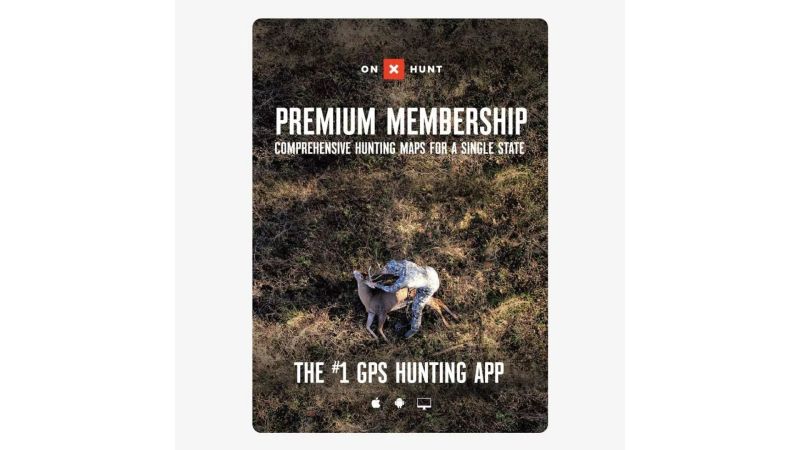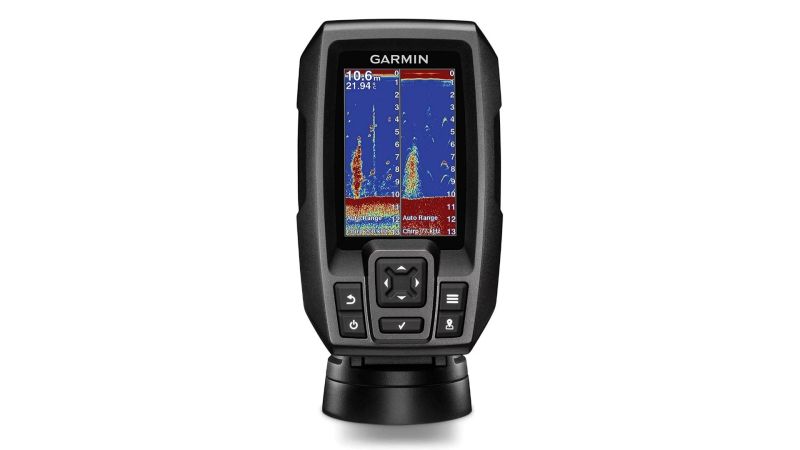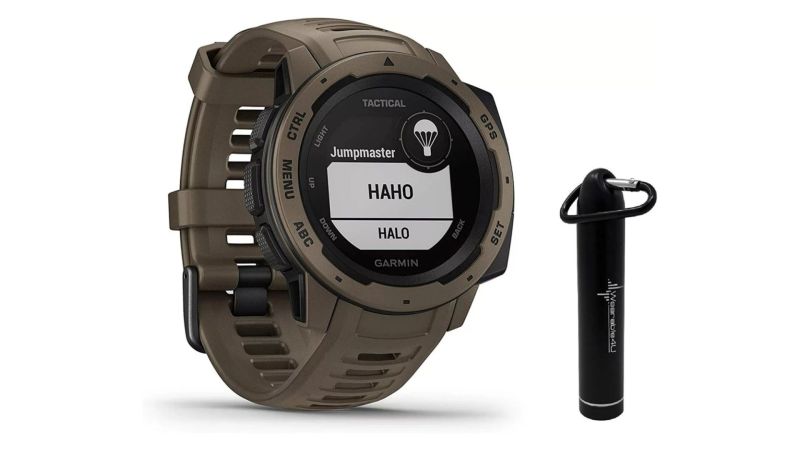We may earn revenue from the products available on this page and participate in affiliate programs.
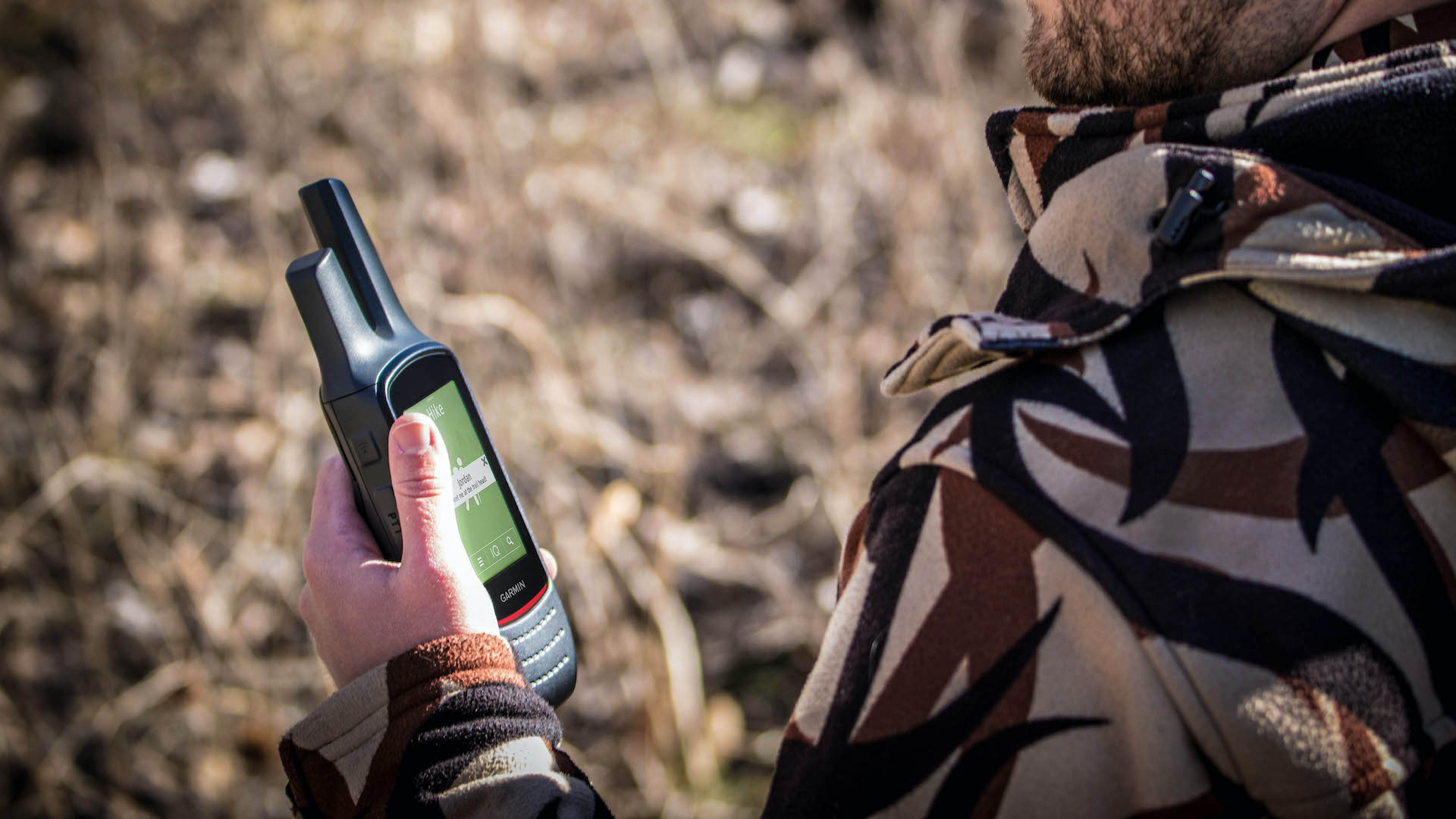
Finding the best hunting GPS can be the difference between a successful hunt in the hinterlands and a desperate search for civilization after you become inescapably lost. As a former Junior Officer in the Army, I’ve heard my fair share of jokes about getting lost — trust me, they’re funny every time — and I know the importance of always being aware of my surroundings, but a good GPS can be applied to hunting in many more ways than just finding your way from point A to point B. Most GPS systems aren’t specifically tailored to hunting, but the large majority can be easily used to meet any hunter’s basic needs, including scouting, route planning, and tracking.
In this article, we’ll narrow down the market choices to help you find the best GPS units for hunting, and go into more detail on how many hunters utilize their systems to maximize their hunting experience and increase their odds of coming home with a stock of fresh meat.
- Best Overall: Garmin inReach Explorer+
- Best Value: Garmin eTrex 22x
- Honorable Mention: Garmin GPSMAP 66i
- Best Lightweight: Garmin InReach Mini
- Best App: onX Hunt Premium App
- Best for Boats: Garmin Striker 4
- Best Watch: Garmin Instinct Tactical Edition GPS Watch
Methodology
“Hunting” cannot be nailed down to any certain terms. For some, hunting is a sport. For others, it’s a way of life, a means of survival, or an existential challenge, putting one’s self closer in tune with their food source. There are many reasons for hunting, and with them, countless ways of putting it into practice. Recognizing this, we’ve sought to review a wide range of hunting GPS devices that would be suitable to any of your hunting needs, whether you are a local hunter, hunting your own land, or a worldwide adventurer, always seeking bigger challenges and greater game.
In order to make sure we are giving you the best recommendations possible, we’ve taken serious time to not only research individual items, their capabilities, and their shortcomings, but also to conduct interviews with fellow hunters and consult expert online sources to learn what people in the field are saying about their devices, how they put them into action, and their suggestions for best practices. Some of the online sources we found beneficial came from the good people at OutdoorLife, The Sporting News, and Eat Elk Meat.
When we talk about the “best GPS for hunting,” we might as well just say “the best Garmin GPS for hunting” because Garmin seems to have the market pretty much cornered on quality GPS systems. As you’ll see below, most of our selections come from Garmin, which is primarily because it produces such a quality product, but also because there aren’t a whole lot of other options that rate anywhere near it.
Just like you don’t want to get lost in the woods on your next hunting trip, we here at Task & Purpose don’t want you getting lost in the purchasing process when it comes to your next hunting GPS, which is why we take our duty very seriously to give you the best recommendations possible. To learn more about our selections and review process, please check out our editorial guidelines here.
Best Overall
Garmin inReach Explorer+
Best Value
Garmin eTrex 22x
Honorable Mention
Garmin GPSMAP 66i
Best Lightweight
Garmin InReach Mini
Best App for Smartphone or Handheld
onX Hunt Premium App
Best for Boats
Garmin Striker 4
Best Watch
Garmin Instinct Tactical Edition GPS Watch
Our verdict on hunting GPSes
Unsurprisingly, all of our picks fall in the Garmin family, but the Garmin inReach Explorer+ stands out as the best choice among the Garmins due to its broad range of functionality and reasonable price (compared to other GPSes with similar functions). If you’re not a globe-trotting hunter and are looking for something more reasonably priced, we recommend the Garmin eTrex 22x as the best hunting GPS for your money, which will still give you all the features you need for hunting in your own neck of the woods.
What to consider when buying a hunting GPS
When choosing your next GPS device, it’s important to consider just what type of functions you need. If you’re a solo artist hunter and you like to spend days on end in the rugged backcountry stalking elk by your lonesome, you may want to consider a device with global satellite communication technology that can get an SOS out if needed. If you’re a local hunter, who just likes to mark waypoints for deer encounters, treestand locations, and the occasional antler rub, you can probably get by with a far less sophisticated device.
Types of hunting GPS
Handheld
The handheld hunting GPS device is definitely the most common and what most people think of when they start their product search. Though they are often similar in size and shape, handheld devices can differ greatly in their capabilities. As you’ve seen from our list above, handheld devices can range from purely navigational tools to sophisticated satellite communication devices.
The handheld devices that are purely for navigational needs are still more than enough for the basic everyday hunter whose primary needs are to mark waypoints for key terrain features like waterholes, clearings with good fields of fire and natural choke points, or to mark signs of animal activity like bedding areas, antler rubs, and tracks. Some hunters who utilize multiple treestands during a single hunting season may use these devices to mark their stand locations to make sure they don’t lose track of any. These handheld devices are not only for pre-hunt scouting, but can also be used for tracking a kill as well. By marking the last known spot on a blood trail, the hunter can be free to explore the area, knowing he has a waypoint to bring him back to the last sure marker.
As the handheld devices go up in price, they go up in functionality, and many of the higher-priced hunting GPS units feature global satellite messaging systems. Though more expensive, this capability can be life-saving in environments that can often turn hazardous in the blink of an eye. These devices may cost a little extra, but if there’s a chance you’ll be hunting somewhere dangerous, a few extra dollars is worth upping the chances you’ll make it back unscathed.
Watches
GPS watches, in conjunction with smartwatches, are a growing trend and may be a good solution for someone looking to cut down the weight of their backpack. Most GPS watches are originally geared for fitness purposes, tracking running routes and keeping tabs on your vitals, but many have the ability to mark waypoints, which is primarily what a hunter needs.
When it comes to GPS watches, what you gain in portability and durability, you lose in versatility. Most GPS watches come with a small monochrome display, making them incapable of displaying detailed topographic maps like their handheld cousins. To combat this disadvantage, most GPS smartwatches can be synced to your smartphone or tablet that does contain detailed maps, so the GPS data can be transferred over and utilized accordingly.
Apps
An increasing number of hunters are opting simply to use their smartphones or tablets as their personal GPS system. A number of apps are available today, like onX Hunt, that can provide accurate topographic maps, aerial imagery, and other key land details that can help hunters along the way. The downside of using an app is that you’re often hamstrung by the availability of cellular service. If you know you’re going to be hunting somewhere outside of cell service, it may be helpful to save maps and overlays to your mobile device before leaving cellular coverage. Data saved from most of these apps can be easily transferred to a handheld GPS device if you opted to use both systems.
Key features of a hunting GPS
Display
The displays on a hunting GPS can range widely, from the small monochrome displays on GPS watches, to the larger, full-color displays of units like the Garmin inReach Explorer+ and the Garmin GPSMAP 66i. Obviously, the higher the display’s resolution, the more detailed and accurate maps and imagery the device can hold. Conversely, a better, brighter display, usually means a little larger device, which then translates into additional weight. If you’re looking to cut ounces from your pack, a smaller, less complicated device might be the way to go.
Durability
If one thing is for sure, a hunting GPS had better be durable. Made for knocking around the woods, a good hunting GPS should be able to withstand drops, scrapes, bumps, and the occasional treestand freefall. If your chosen GPS doesn’t feature external protections, it might behoove you to purchase a good carrying case to prevent any accidental damage. On top of physical abuse, a good GPS should offer some level of water resistance. Most of the devices on our list have a waterproof rating of IPX7, which means they can be submerged in water up to one meter deep for up to 30 minutes.
Battery life
Though it’s often a secondary consideration when shopping for a GPS device, battery life can be the difference between a well-navigated hunt and an aimless blunder through the woods. It could also mean the difference between life and death. It’s imperative to know the capabilities of your device when it comes to its battery life and how the different function modes can drain the battery at different rates. Just because a device boasts a max battery life of 50 hours doesn’t mean you’re going to get that length of time if you keep the GPS mode on for the full duration. Take time to understand the nuances of your device, so you don’t get lost in the woods with a dead GPS.
Pricing
As with anything, the pricing of hunting GPS devices varies widely depending on the extent of the device’s capabilities and the quality of its build. Generally speaking, for regular handheld devices, $100 to $200 will get you a device with a monochrome display, decent durability, and basic GPS capabilities such as waypoint storage and route tracking. Between $200 and $350, you start to see devices with color LCD screens that can display better and more detailed maps. Many of these devices are able to sync with smartphones/tablets and have SD card readers, so more maps can be utilized. At $350 and above, GPS devices begin to incorporate communications technologies such as radio or digital messaging. As the price climbs, so do the messaging capabilities, and some of the higher-priced devices offer global satellite messaging.
Tips and tricks
As with something you do for decades upon decades, you pick up a few tips and tricks along the way in terms of selecting the right product, and/or using it. That’s the case with us and hunting GPS devices. To help you bridge the information gap, here’s a selection of what we’ve learned along the way.
- Always carry a spare power source in case of emergencies.
- Preload your GPS device with needed maps and imagery before leaving service areas.
- Designate specific waypoint icons to specific scouting highlights (beds/rubs/animal encounters/lookout spots) to better remember why you marked them later on.
- No matter how good a product is, err on the side of preparedness. Always carry a compass as a backup.
FAQs about hunting GPS
You’ve got questions, Task & Purpose has answers.
Q: Who makes the most accurate GPS?
A: Garmin. Go through any list of top GPSes, and what you’ll find is just a long list of Garmin devices.
Q: What is the difference between GPS and DGPS?
A: The main difference between GPS and DGPS (Differential GPS) is the way in which a location is calculated. With a regular GPS, a signal is returned to the device via several satellites. With a DGPS system, the satellite information is sent through a secondary, fixed receiver that then transmits the data back to the main receiver, preventing signal degradation that can cause inaccuracies.
Q: What is the easiest GPS to use for hunting?
A: Ease of use is often relative to the user, but generally, the devices that are easiest to use offer the fewest features. The more functions a device has, the more there is to learn to effectively use them. From a personal standpoint, if I were going to be spending a good chunk of money on a hunting GPS, I’d focus on its accuracy and durability before I worried about its ease of use.
Q: Is DGPS more accurate than GPS?
A: Yes. While standard GPS is usually accurate to within 10 meters, the DGPS systems are accurate to around one meter or less (sometimes down to 10 centimeters).
